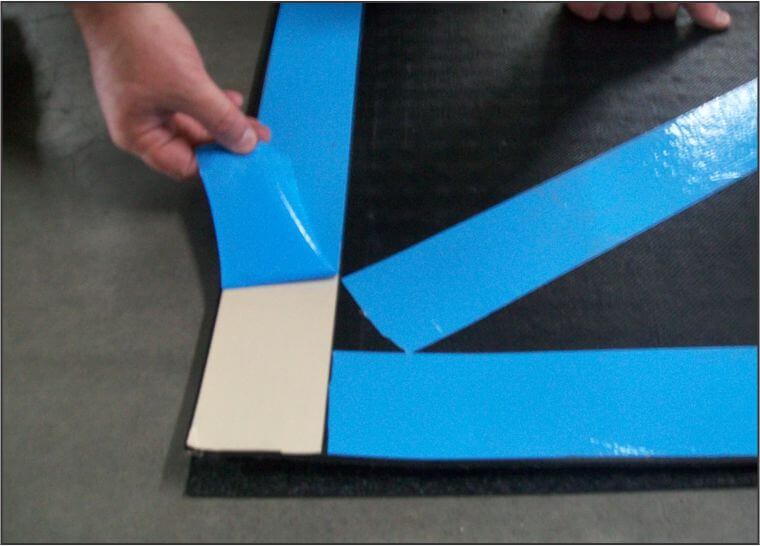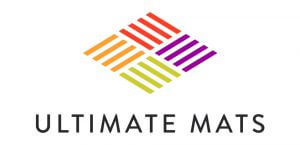
How to Keep Door Mats from Sliding
As a business owner, you know you must do your part to protect not only the integrity of your store, but the safety of your patrons. Not only are you required by law to take certain precautions to ensure your customers and employees are safe, but you also accept the responsibility of ensuring your guests are well cared for and can safely enter, conduct business, and exit your store in a safe and efficient manner the moment you become a business owner. Of utmost importance is safety–it’s a smart and necessary business practice. While there are numerous ways to protect yourself, your employees, and your guests, one of the simplest and most cost-effective ways is to provide high-quality floor mats in areas of high traffic, especially entrances and exits. Slip and fall accidents account for the majority of shop-related injuries, and account for the majority of worker’s compensation claims, according to the National Flooring Safety Institute. Worker’s compensation claims can cost an employer a massive amount of time and money, and if a customer or client is injured, the result is the same; time, money, and possibly lawsuits and legal fees.
A really bad slip and fall can have the potential to shut down a small business. In fact, not only will the slip and fall end up costing you for the particular incident itself, but you’ll also incur an increase in your insurance premiums. With the high risk related to slip and fall injuries, it’s very clear that a business owner needs to be diligent in keeping the floor space safe and easily accessible by all. Providing door mats is one way to significantly reduce the amount of slip and fall incidents that occur on your premises. A high-quality, water-absorbent doormat, for instance, can prevent moisture from the outdoors like rain, sleet, and/or snow from making its way to your shop floor, creating a potential hazard. It’s also an excellent way to keep dirt and other debris from foot traffic outside, off of your storeroom floor, which saves you and your team valuable time otherwise spent sweeping and mopping.
There are, however, a few caveats to doormat safety; a doormat is only safe if it stays where it is placed, is adequate to cover the space intended, can handle the amount of foot traffic it sees, and is in good repair. Low-end, cheaply made mats are not only unsightly and wear out easily, but they can also become even more of a hazard than a bare floor alone. A mat that slips when stepped upon or relocates itself so that it no longer protects the area it was meant to protect is not only of little value, it can actually cost you in terms of potential slip and fall events. The solution to this problem is to purchase high-quality floor mats that grip the floor properly and refuse to budge. A great doormat will be crafted in a manner that has been tested and proven to resist slipping, even when exposed to excess moisture, or extremely heavy foot traffic. There are two parts to this equation. The first is purchasing a mat that is durable and resistant to slippage. The second part is proper care of the mat so that it stays in prime, non-skid condition.
Purchasing a Non-Slip Door Mat
You can purchase a doormat practically anywhere; in fact, you can even buy them at a “dollar only” store. Rest assured, however, that you will get what you pay for, and that dollar you spent on a doormat can eventually cost you thousands in claims and fees should someone have a slip and fall injury in your business as a result of that faulty mat. Rather than put yourself, your employees, and customers at risk, the best course of action is to purchase a high-quality doormat in the first place. Here are four things for which you should look in a high-quality doormat:
1. Certification of Slip Resistance. The National Floor Safety Institute (NFSI) offers certifications of slip resistance to manufacturers of doormats they have thoroughly tested. These mats have been tested and proven to meet the NFSI’s strict standards of safety for floor mat design, construction, and quality. Only mats that meet the highest standard of manufacture are given this certification.
2. Optional Backings. One size does not fit all for doormat backings. If you have a solid, hard-surfaced floor such as concrete, wood, or tile, you will need a different type of doormat backing than you do for carpeted surfaces, regardless of how tightly woven and short the carpet fibers may be. For carpeted surfaces, a cleated rubber backing is best, as the cleats have the ability to grip the carpet fibers without damaging them. That grip allows the mat to stay in place.
3. Quick-drying surface. Even if your floor mat has a death grip on the floor beneath it, it means nothing if the surface is as slick as ice. In addition to having a surface that is patterned and constructed in such a manner as to allow foot traffic to flow over it smoothly without slipping, it should also be quick drying. If the surface of the doormat becomes wet, as it often will, it needs to be able to dry quickly so that there is no risk of slip and fall on the surface of the mat itself. A great option for fast-drying entry and exit doormats are the WaterHog line of mats, which are specially crafted with a trademarked water-dam border that traps water and sends it below the surface of the mat. This technology keeps the mat surface as dry as possible and prevents standing water. These mats are also extremely quick-drying, ensuring the mat surface is consistently safe.
4. Mold and mildew resistance. The same slippery mold and mildew that collects in the bottom of your shower pan can collect on a floor mat. If this happens, the chances of the mat slipping are higher, not to mention the fact the mat will likely be unsightly and develop an odor. A mat that can resist mold and mildew from developing is a great investment for your business and will last longer than a mat develops mold and mildew, which can be impossible to remove.
Proper Mat Care to Prevent Sliding
If you’ve already purchased your doormats, you’ll want to take particular care to ensure they are functioning properly. This includes inspecting your mats regularly to make certain they are free from damage, and then taking necessary actions to repair, restore, or replace them if they don’t pass the inspection. Here are three ways to take care of your door mats to prevent them from slipping.
1. Clean your mat regularly. Most high-quality commercial door mats can go for weeks at a time without the need to be cleaned. They rarely show dirt, they dry quickly, and are constructed with “non-crush” technology so they always look new and never worn. However, eventually, they need to be cleaned to ensure the fibers are not filled with debris, and they can continue to do their job properly. Always refer to the mat manufacturer’s care guidelines to properly care for your doormat.
2. Keep your flooring in good repair. As essential as it is to keep your matting clean and undamaged, you need to ensure the flooring beneath the mat is in good condition as well. Especially under extremely large doormats, it can be easy to forget to check the condition of the floor beneath the mat. If water has collected on the floor and caused mold or mildew to develop, this can cause your doormat to slip. As such, it’s important to remove your doormat and clean beneath it on occasion.
3. Mat pads/backings. If you purchase a high-quality doormat, the chances of you needing any kind of mat backing or padding are extremely slim. However, if you are attempting to limp an older mat along until a new one is received, you can attempt to place a rubberized mat backing under the mat, or spray it with a grip adhesive to keep it in place. It should be noted, however, that mat backings are classically ineffective in keeping a commercial doormat in place for any length of time. The best way to keep a doormat from slipping is to invest in a quality doormat. Keeping a doormat from sliding is really an issue with mat quality itself. A cheap, poorly constructed mat simply will not resist slippage. If a commercial doormat has been certified by the NFSI to resist slipping, you can be certain that it has been tested to ensure its safety.
Additionally, proper doormat care is essential to maintaining the safety and integrity of your doormat. A mat that has been heavily soiled cannot perform as effectively as a mat that has been properly cleaned. It’s also important to make sure that mats are inspected regularly for damage, standing water, and mildew and/or mold development. Ultimate Mats can help you find the perfect doormats to keep your floor space hazard-free, and your employees and customers safe, so check out all the high-quality options available to you today and make your workplace safer for all!
Sources:
https://www.robsonforensic.com/articles/floor-mat-expert-witness/
https://riskandinsurance.com/slips-and-falls-in-high-end-retail/
